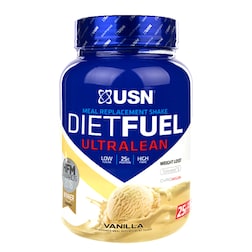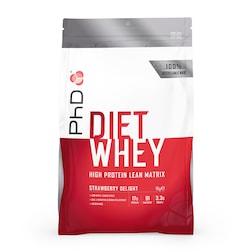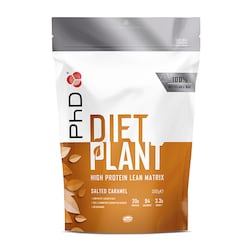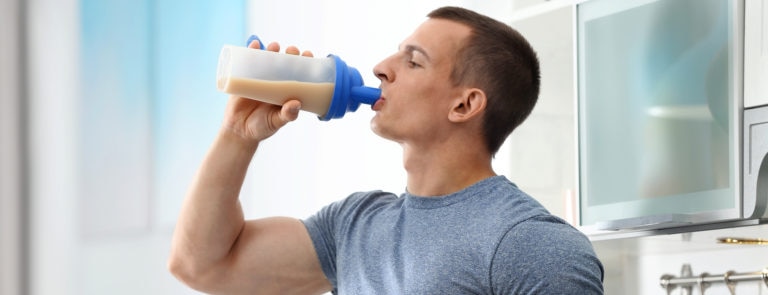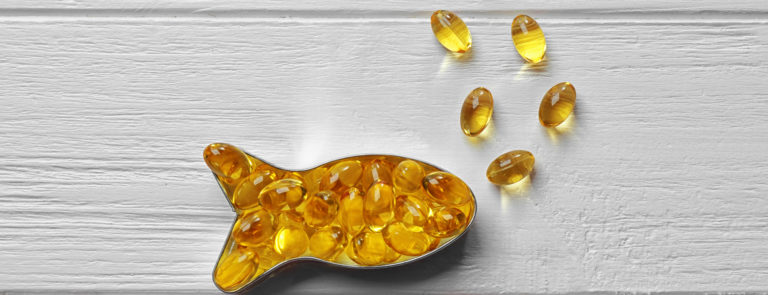15% off £30
The best protein shakes for weight loss
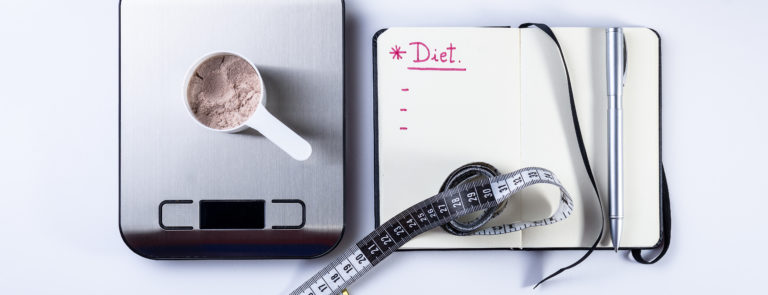
If you’re looking for a healthy way to help with weight loss, protein shakes might be the answer.
What is a protein shake?
A protein shake is a drink made with a source of protein – usually protein powder - and a liquid such as water or milk. There are a range of different types of protein powder, from both animal and plant-based sources.
The benefits of consuming a daily protein shake for weight loss can be huge. First, though, you need to understand a little about them and how they work to avoid making common mistakes which will sabotage your results.
Using protein shakes incorrectly will leave you with weight gain – the opposite of what you want!
How much protein is needed?
Along with carbohydrates, fibre and fat, protein is what’s known as a macronutrient. This means the body requires a lot of it to stay healthy.
In developed countries such as the UK, people tend to get enough protein from their daily diet to maintain a well-nourished body and maintain healthy bodily functions.1
If your body isn’t getting quite enough protein, it has ways of letting you know. Look out for these signs:
- hair, skin and nails that are dull, flaky and dry
- muscle weakness
- loss of muscle mass
For adults, the general daily requirement is 0.6g of protein per kilogram bodyweight.2 So if you weigh 80kg, you’d need around 48g protein daily to stay healthy. Increasing your protein intake might have benefits if you’re trying to lose weight.
Those participating in regular exercise, particularly heavy forms of exercise such as strength training, can get more protein.
The upper limit is 2.2g per kg of body weight.3 This is only recommended if the goal is to gain muscle, as this much protein is likely to mean too many calories if you’re trying to lose weight.
Why protein can help us lose weight
Protein is a not-so-secret weapon when it comes to weight loss. The main reason for this is protein is satiating – which means it makes you full.
This is because protein takes a relatively long time to be digested by the body, so you remain full for longer.4
The body has to work harder to digest protein-rich foods, too, meaning you burn more calories digesting a protein-rich meal than a high-carb one, for instance. Protein’s satiating quality is also thought to help prevent cravings for foods with ‘empty’ calories such as crisps, chocolate, crackers etc.5
This results in eating fewer calories over the course of the day, especially from carbohydrate-rich or fatty foods. Over the course of a few weeks, this leads to weight loss.
In conjunction with strength training exercises, protein can help you turn fat into muscle. Of course, muscle weighs more than fat so you won’t see much change on the scales, but you’ll certainly see the difference in the mirror!
Strength training, along with an increase of dietary protein, both helps you burn fat and triggers muscle protein synthesis6 – which is what helps grow lean muscle. Remember – muscle burns more calories than fat, so the more muscle you have, the leaner you’ll look.
Being constantly hungry is incompatible with long-lasting weight loss. Therefore, protein shakes for weight loss work by boosting your diet’s protein content without adding too many extra calories.
Drinking shakes made with protein powders for weight loss allows you to get lots of satiating protein without the calories of a full meal and stop eating so many calories throughout the day.7
It’s important to know that you shouldn’t replace a balanced, protein-rich diet with protein shakes. As with anything, too much protein will add too many calories and cause weight gain. Shakes should supplement your existing intake from food – not replace it.
What's in protein shakes?
What’s in a protein shake is up to you. You just need to choose your protein powder and your liquid of choice. Protein powder itself is literally a protein source – whether that’s whey, soy, pea or another – that’s been powdered.
The simplest type of protein shake contains just protein powder and water or milk.
The other end of the scale sees more complicated protein shakes with peanut butter, Greek yoghurt, oats, fruit juice or chia seeds.
Adding dried fruit, nut butters, cocoa powder, etc, ramps up the calories significantly and can turn your weight-loss protein shake into a weight-gain one.
Be sure to check the ingredients, as some protein powders also contain carbohydrate-heavy thickeners or sugar which could be detrimental to weight loss.
Be warned - protein powder on its own isn’t known for its great taste, so it usually comes flavoured. Most people use milk or plant-based milks in their protein shakes for a thicker consistency. Use water or reduced-fat or skimmed versions of your favourite milk to keep the calories down.
Ice cubes are often used to help thicken protein shakes, too. Simply add them to the blender while you whizz up the powder and your liquid of choice.
What types of protein powders are available?
Protein powders can come from both animal protein sources:
- whey- from milk
- casein- from milk
- beef
- egg
And plant protein sources:
- soy
- pea
- hemp
- rice
Beyond the sources of protein, there are three broad types:
- concentrate
- isolate
- hydra (meaning ‘hydrolysed’ or broken down)
The best weight loss shakes are high in protein, but low in fat, carbohydrates and calories. Therefore, protein isolate comes out on top for dieters as it’s lowest in fat and carbohydrates compared to concentrate and hydra.
What time should you drink them?
Breakfast time might be the most effective time to drink your weight loss protein shake to promote fullness and curb appetite throughout the whole day.
Ideally, you’ll be satisfied after drinking your shake, but if the calories in the shake, you could also eat a portion of whole foods, such as a handful of blueberries and some almonds.8
Similar Vitamin C products
Last updated: 22 March 2021
- https://www.bhf.org.uk/informationsupport/heart-matters-magazine/nutrition/protein
- https://www.nutrition.org.uk/nutritionscience/nutrients-food-and-ingredients/protein
- https://jissn.biomedcentral.com/articles/10.1186/s12970-018-0215-1
- https://academic.oup.com/ajcn/article/83/1/89/4649634
- https://pubmed.ncbi.nlm.nih.gov/20847729/
- https://www.ncbi.nlm.nih.gov/pmc/articles/PMC3381813/
- https://pubmed.ncbi.nlm.nih.gov/16002798/
- https://www.ncbi.nlm.nih.gov/pmc/articles/PMC4334852/
